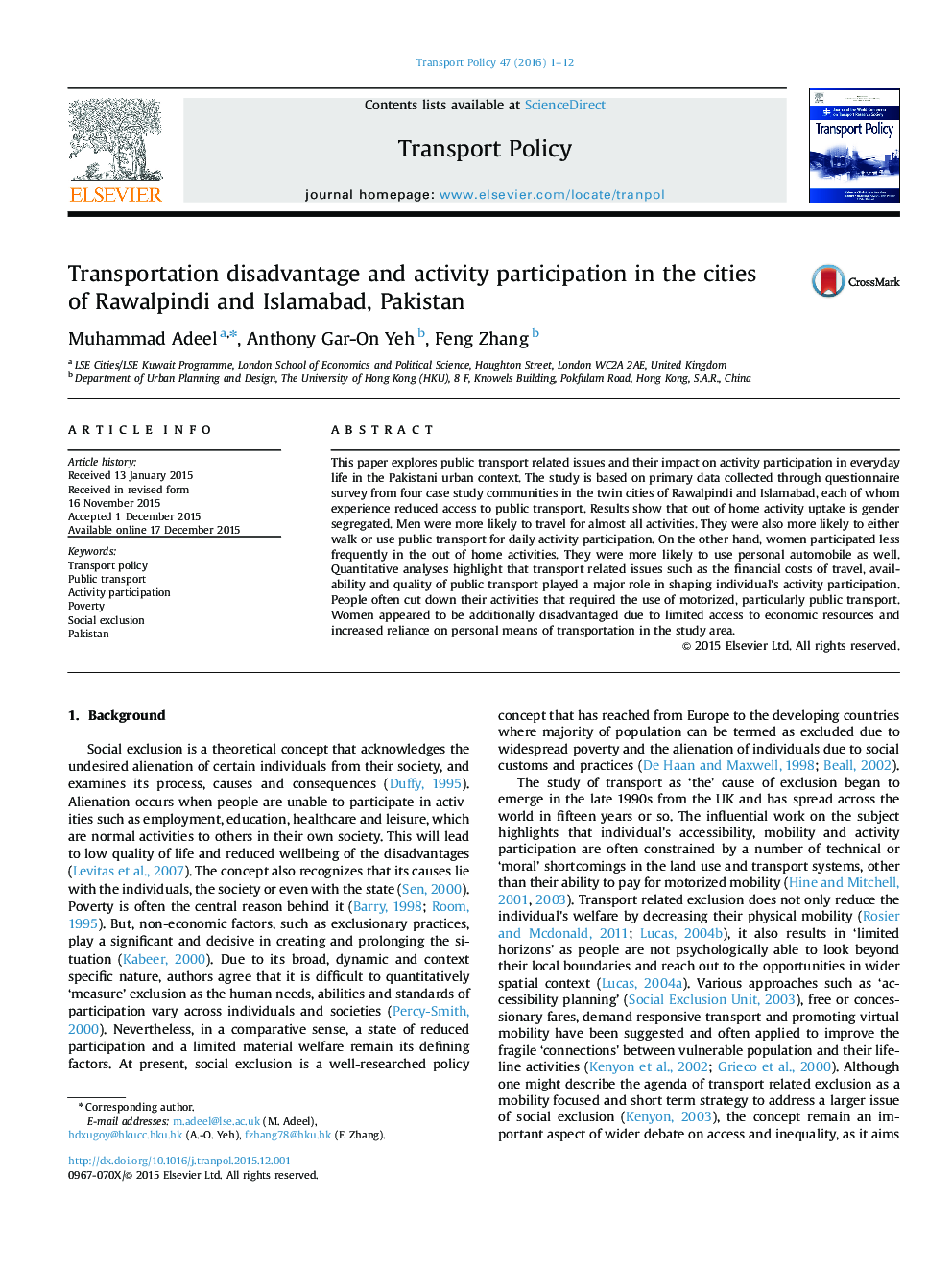| Article ID | Journal | Published Year | Pages | File Type |
|---|---|---|---|---|
| 1064744 | Transport Policy | 2016 | 12 Pages |
•Issues of transport availability and affordability shape activity participation.•People respond to their transport disadvantage by minimizing discretionary travel.•Women, poor and suburban residents are more severely affected.
This paper explores public transport related issues and their impact on activity participation in everyday life in the Pakistani urban context. The study is based on primary data collected through questionnaire survey from four case study communities in the twin cities of Rawalpindi and Islamabad, each of whom experience reduced access to public transport. Results show that out of home activity uptake is gender segregated. Men were more likely to travel for almost all activities. They were also more likely to either walk or use public transport for daily activity participation. On the other hand, women participated less frequently in the out of home activities. They were more likely to use personal automobile as well. Quantitative analyses highlight that transport related issues such as the financial costs of travel, availability and quality of public transport played a major role in shaping individual's activity participation. People often cut down their activities that required the use of motorized, particularly public transport. Women appeared to be additionally disadvantaged due to limited access to economic resources and increased reliance on personal means of transportation in the study area.
